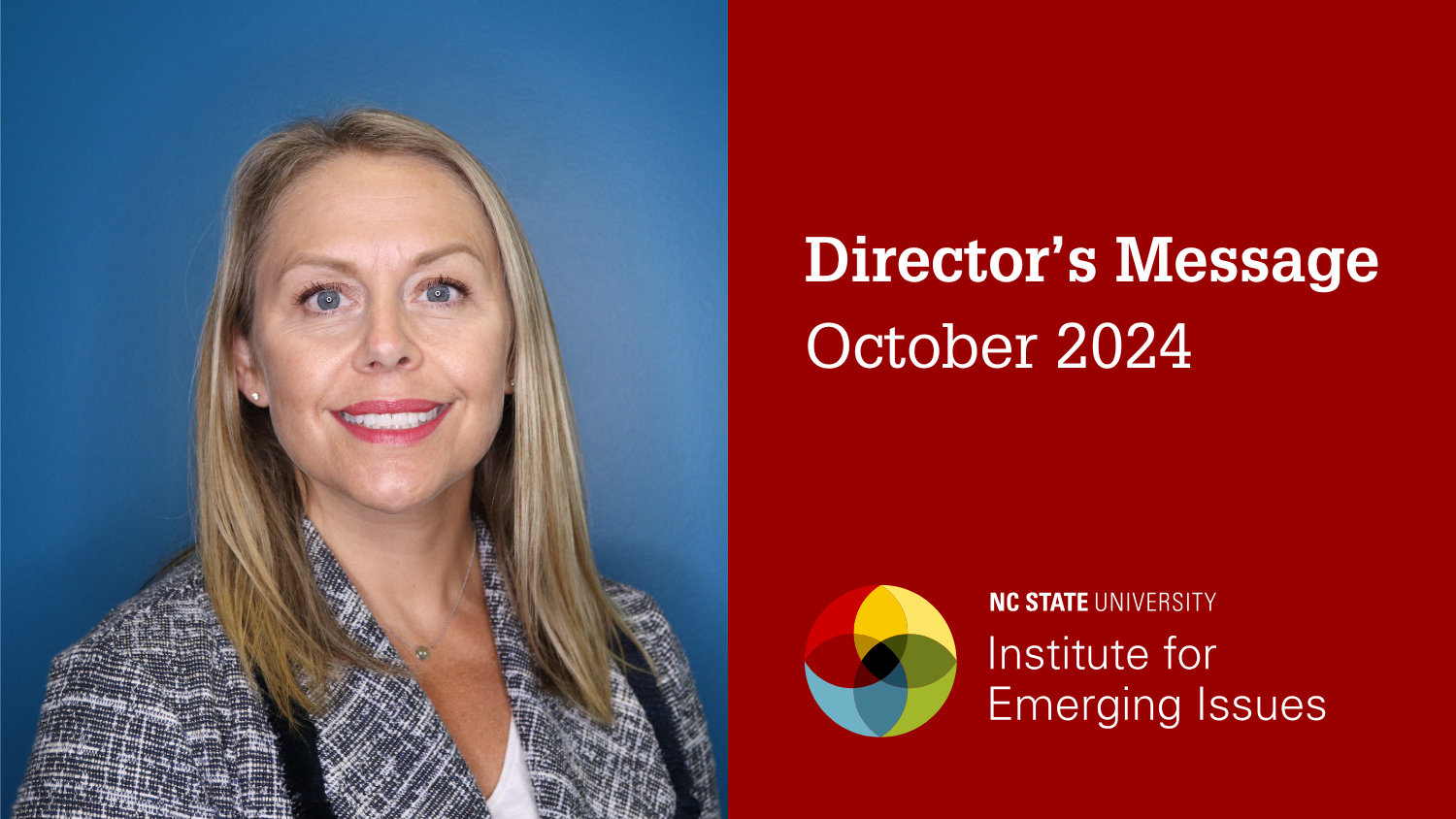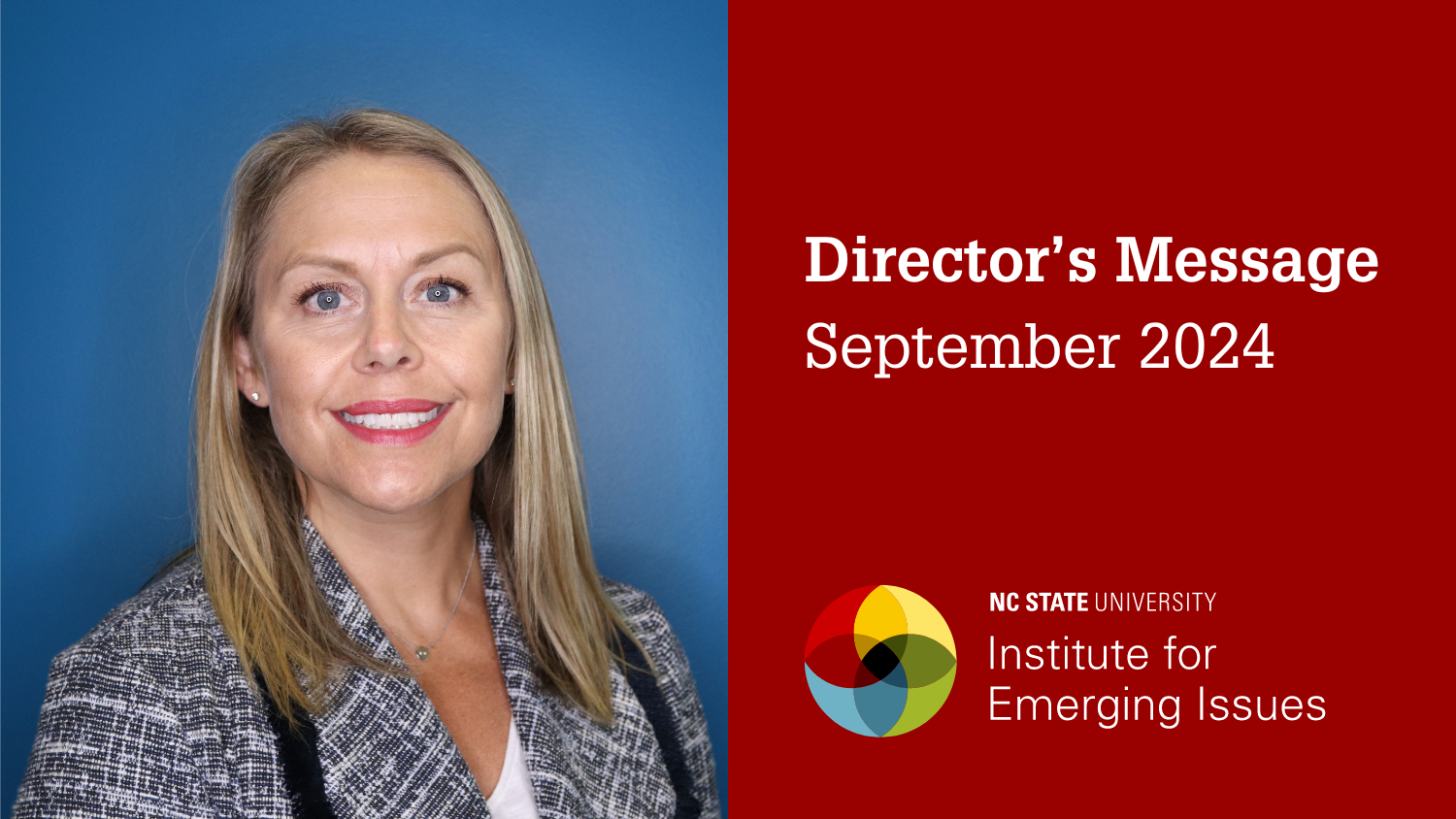Director’s Log | February 2022

Just down the road from IEI’s offices at NC State sits a hulking slab of 60’s style concrete with a giant “K” on the side – the abandoned carcass of a K Mart. The K Mart empire died for a lot of reasons, but one of them was a fundamental misunderstanding of the right balance between local autonomy and corporate efficiency.
In his new book, The Voltage Effect: How to Make Good Ideas Great and Great Ideas Scale, John List cites one example of how corporate micromanagement failed K Mart: they screwed up the “Blue Light Special.” If you ever shopped at K Mart, you know the thrill – and shock – that came when the blue light started spinning like a disco ball and a siren went off in the store, followed by “Attention K Mart Shoppers…”. It meant there was a ridiculously good deal on something lurking under the light. We flocked like homing pigeons to swoop in and scoop up whatever it was (yeah maybe I really didn’t need any more Ginzu knives, but they were such a deal….).
The idea really worked, List says, because local store managers knew exactly what they had too much of, what their local shoppers wanted and when they shopped. It was a wild success, so good that corporate decided they could make it better. Each week, they decided, they would require all 2100 K Marts in the world to offer the same blue light specials, at the same time on the same days.
That made perfect sense to central planners. And it just killed the blue light special. Suddenly individual stores couldn’t get rid of the stuff they had too much of, and had to get rid of stuff that was selling just fine for a fraction of what people were willing to pay.
I’ve spent nearly 30 years working on state-level programs that try to address state challenges: How can we get struggling K-12 students the extra mentoring they need to catch up? How do we help people get jobs when they rotate off of public assistance? How do we help rural small towns rebuild economies post-globalization? How can universities attract top talent from across the world? How do we get more broadband to rural places? Almost universally, the ideas that have bombed are the ones that assumed “one size fits all” – that the “solution” that works in Charlotte will work in Shallotte – and require folks to pledge blind adherence to a “proven” model as a prerequisite to getting funding. The ones that work put broad principles and a few guardrails in place, then allow mass customization on a local scale.
At this month’s Emerging Issues Forum (for a fuller summary of the Forum’s findings, check out Pat Cronin’s excellent summary), we got an inspiring peek at how local autonomy works when it comes to encouraging more people to get the extra education they need beyond high school to be successful. Among other things, we heard about a coalition of businesses in southeastern North Carolina working together to increase attainment of existing workers, how ministries in Cullowhee and New Bern are helping congregation members get more education, and how a series of local multisector coalitions across the state are coming together to develop solutions that work in their particular regions.
That’s not to say that there isn’t a role for state level entities in providing the resources. The bipartisan Longleaf Commitment Grant program and Finish Line Grant programs pull together resources that support thousands of students across the state trying to find the financial support to start or complete their education. The statewide attainment goal was arrived at through a partnership of state level government, private sector and philanthropic leaders and a statewide organization, myFutureNC, carries the flame.
But ultimately the decision about who gets those scholarships, how businesses partner with their nearby educational institutions, how faith communities make the case to congregation members, how returning students get to class – all that – has to be local, personal.
As Rupen Fofaria, a reporter at EducationNC noted at the Forum: “We have to be really intentional about not taking one solution and then trying to scale that uniformly across 100 counties…The solutions that seem to be having success…are very locally driven.”
That tracks with what James and Deb Fallows found in their book Our Towns. Their observation: national and state government can get lost in theoretical arguments, but at a local level, “people work together on practical possibilities, rather than allowing bitter disagreements about national politics to keep them apart.”
And it’s a belief we have baked into all of our work at IEI. A few examples:
- Our BAND-NC program provides assistance to counties in developing plans to extend broadband to families that have not yet adopted the technology, but we give them the autonomy to leverage local resources and come up with their own solutions.
- Our Rural Faith Communities as Anchor Institutions program starts with the idea that faith communities can play a critical role in helping struggling communities solve big problems, and helps them see models on how to do that. But then we take a step back and watch the creativity of each place.
- For each of the topics we tackle in our Emerging Issues Forums, we find 5 communities across the state we think are doing remarkable work. Then we work with them over a year or two to help refine their customized ideas and share them with each other and folks across the state.
This month we made our not-so-subtle love for local ideas just a little bit more obvious. On 2-22-22 we lifted up 22 local leaders who we’ve been able to learn from over the past five years. They aren’t famous – yet. They don’t necessarily have titles that identify them as people you are supposed to listen to. Instead they are just doing the work every day, making their communities better.
Yes, K Mart died. But there’s no reason the blue light special can’t live on. In fact, its spirit is alive and kicking across our state. It may be done at a different height in Apex and Pitt, be made out of different stuff in Ashe and Clay, or come in different colors in Orange and Greene, but as long as we have people committed to turning their energy and ingenuity into great local ideas, IEI will swoop in, scoop up and celebrate the special sauce local innovators are developing.
- Categories:


